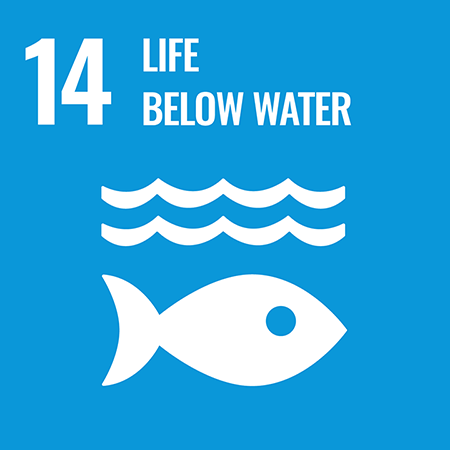Nanoparticles for biodecomposable polymers made from upcycled PET&PP waste
Abstract
The upPE-T project aims at the upcycling of persistent petroleum-based plastics through bioconversion. Biodegradable plastics for food and beverage packaging are produced. Plastic packaging, which accounts for almost 60% of the total plastic waste in Europe, is highly problematic from a waste management and ecological point of view due to its durability and degradability. Polyethylene (PE) and polyethylene terephthalate (PET) are the leading plastics used for food and beverage packaging (43% PE and 19% PET). The recycling of this plastic waste has become a major problem that is contrary to the development of a sustainable society. In upPE-T we will develop sustainable strategies as an alternative for the chemical degradation of plastics. The consortium will improve PE and PET depolymerization through enzymatic engineering to increase the recycling rate of food and beverage packaging and achieve the improvement expected by the European Union. In upPE-T we will convert PE and PET waste streams into raw material for the production of biodegradable plastics by enzymatic degradation and biotechnological processes. Finally, together with customers and brand owners of food and beverages, the bio-based final packaging will be demonstrated and validated to ensure rapid market introduction. In addition, to ensure that PE and PET are 100% recyclable, plastic waste that is not optimal for microbial bioconversion into bioplastics will be upgraded by using it in construction applications rather than being sent for incineration or landfill.
nanoparticles Composit materials recycling compostable core-shell-nanoparticles
Publikationen
Project staff
Ronald Zirbs
Dipl.-Ing. Dr. Ronald Zirbs
ronald.zirbs@boku.ac.at
Tel: +43 1 47654-80206
BOKU Project Leader
01.11.2020 - 31.10.2024
Kuba Dymitr Bomba
Kuba Dymitr Bomba MSc.
kuba.bomba@boku.ac.at
Project Staff
01.12.2020 - 31.10.2024
Max Willinger
Dipl.-Ing. Max Willinger
max.willinger@boku.ac.at
Project Staff
01.11.2020 - 16.12.2021
BOKU partners
External partners

ASOCIACIÓN EMPRESARIAL DE INVESTIGACIÓN CENTRO TECNOLÓGICO DEL CALZADO Y DEL PLÁSTICO DE LA REGIÓN DE MURCIA
none
partner

ENZYMICALS AG
none
partner

DRUSTVO SA OGRANICENOM ODGOVORNOSCU ECO Plastics Beograd CUKARICA
none
partner

ASOCIACION PARA LA PROMOCION, INVESTIGACION, DESARROLLO E INNOVACION TECNOLOGICA DE LA INDUSTRIA DEL CALZADO Y CONEXAS DE LA RIOJA
none
partner

TAMPEREEN KORKEAKOULUSAATIO SR
none
partner

LAPPEENRANNAN-LAHDEN TEKNILLINEN YLIOPISTO LUT
none
partner

TECNOALIMENTI S.C.P.A.
none
partner

INSTITUTE FOR DEVELOPMENT AND INNOVATION
none
partner

DIGIOTOUCH OÜ
none
partner

UNIONE NAZIONALE CONSUMATORI COMITATO REGIONALE UMBRIA
none
partner

DIMOS NEAS SMYRNI - MUNICIPALITY NEASSMYRNIS
none
partner

(13) DURUKAN SEKERLEME SANAYI VE TICARETANONIM SIRKETI - DURUKAN CONFECTIONERY INC
none
partner

ASOCIACION ESPANOLA DE NORMALIZACION
none
partner

CETEC BIOTECHNOLOGY SL
none
partner

University of Alicante
none
partner

BIO-MI DRUSTVO S OGRANICENOM ODGOVORNOSCU ZA PROIZVODNJU, ISTRAZIVANJEI RAZVOJ
none
partner

VILLANI SPA
none
partner

MOSES PRODUCTOS SL
none
partner

University Greifswald
none
partner


